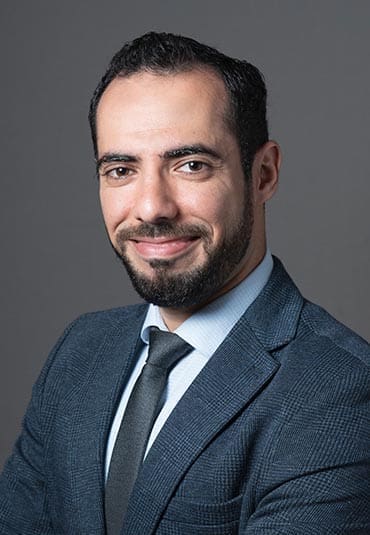Iraqi-born Christian remains hopeful, despite separation from family
By MSGR. RICHARD LOPEZ | Published December 12, 2019
ATLANTA—Many people are aware of the serious crisis in the Middle East, where Christians are persecuted and churches bombed daily. However, it is rare to hear the voice of someone who has first-hand experience of these tragic events.

Landy Youkhana
Landy Youkhana, who was born in 1985 and raised in Baghdad, is now living in Atlanta. He came to the United States as a college student. He agreed to share some of his story in the following interview:
How long have Christians been in Iraq, how did they get there?
A common misconception you hear often is that only Muslims lived in Iraq. This is not accurate. Christians have lived in Iraq from the first century, as a result of the first missionary efforts from St. Thomas the Apostle, when he baptized the first Christians of Iraq.
Have Christians always lived peacefully and unobstructed in their homeland?
Christians in Iraq have always been peaceful and tried to live in harmony with other religions. However, from history and current events, we see that over the centuries, Christians have always suffered from some sort of persecution. The most recent in the past century were the genocides following World War I in the early 1930’s, which cut our numbers to a third. In the last 17 years, since the last war in 2003, our count went from one and a half million to less than two hundred thousand Christians currently living in Iraq. The rest, like my family and myself, experienced threats, and had to leave the country abruptly or die.
What was your experience of Muslims in your country?
… the ones who followed their sharia (law) were the most harmful and unfriendly to me. The secular Muslims, on the other hand, empathized and were more accepting. Occasionally, my parents would come to the grade school and ask that the teachers let my brother and myself leave during the Quran class. Some teachers would force us to stay and learn, in an effort to convert us to Islam. After the war, most Muslims became hostile and territorial. They would casually bring up conversational topics that alienated me.
How have your family and friends been impacted by the events of the past 30 years in Iraq?
Growing up in a repressive regime, we remained under the radar to maintain stability and meet our basic needs. While we were free to practice our religion in many Catholic churches in Baghdad, we were prohibited from participating in any public religious activities or talks. Preaching to non-Muslims and evangelization would get you in jail faster than robbing a bank. The stability was completely gone after the 2003 war. Our churches were bombed or destroyed completely. Many priests and bishops were kidnapped and killed. Families like mine were fortunate to receive a threat. Others were killed on the spot for being Christians. We had to avoid any contact with suspicious individuals. Some of these individuals were our neighbors whom we’d known for decades.
How did you get to the United States and what do you do here?
I’m blessed to have a scholarship from Fulbright. They brought me to the United States, where I got my M.S. degree in computer engineering. I was able to stay here on the grounds of political asylum, and became a United States citizen recently. This was by large the single most impactful blessing in the last decade for me. I work for a software company and love my work. It’s a privilege that many of my peers back in Iraq didn’t have.
As the U.S. has declared Christians to be victims of genocide in the Middle East and therefore eligible for asylum, why is your family not here? Why are Christians stuck in refugee camps?
My family left Iraq a few years ago, and they have been in transition since then. It’s extremely puzzling and sad how we are treated internationally, and specifically by U.S. politics. We are victims of genocide, and despite the numerous pleas that I have made to immigration services, no action has been taken to help my family get into the United States. There is no answer to why the world is watching and doing nothing to help and protect Christians in refugee camps. I would like to invite anyone who disagrees with this perspective to live a day in the lives of these persecuted Christians.
What do you envision as the future of Christians in Iraq?
I believe that Christians belong to Iraq. There is too much history to leave behind and close that book. We have to return one day, and rebuild what was destroyed. But regardless of how depressing the picture is looking now, there is something to be learned from today, and that is love—the love for Christ, and our neighbor. Also, to persevere, even in the most hopeless situations. We are used to this in a way. Bad governments, unjust treatment and persecutions have been part of my family’s upbringing. The point is, there is always hope.
What can American Catholics do to help our brothers and sisters in the Middle East?
There are many avenues to help. The more permanent ones are to voice your opinion and to vote for leaders in the United States who prioritize humanity over capital at least in these situations. Other options that can help are to donate to organizations who deploy people to help Christians in refugee camps. Along with all of this, please pray. Pray for my family, for others who don’t have a sponsor or anyone to look after their needs. Educate your family and friends around you.
Msgr. Richard Lopez served for many years as a teacher at St. Pius X High School, Atlanta.